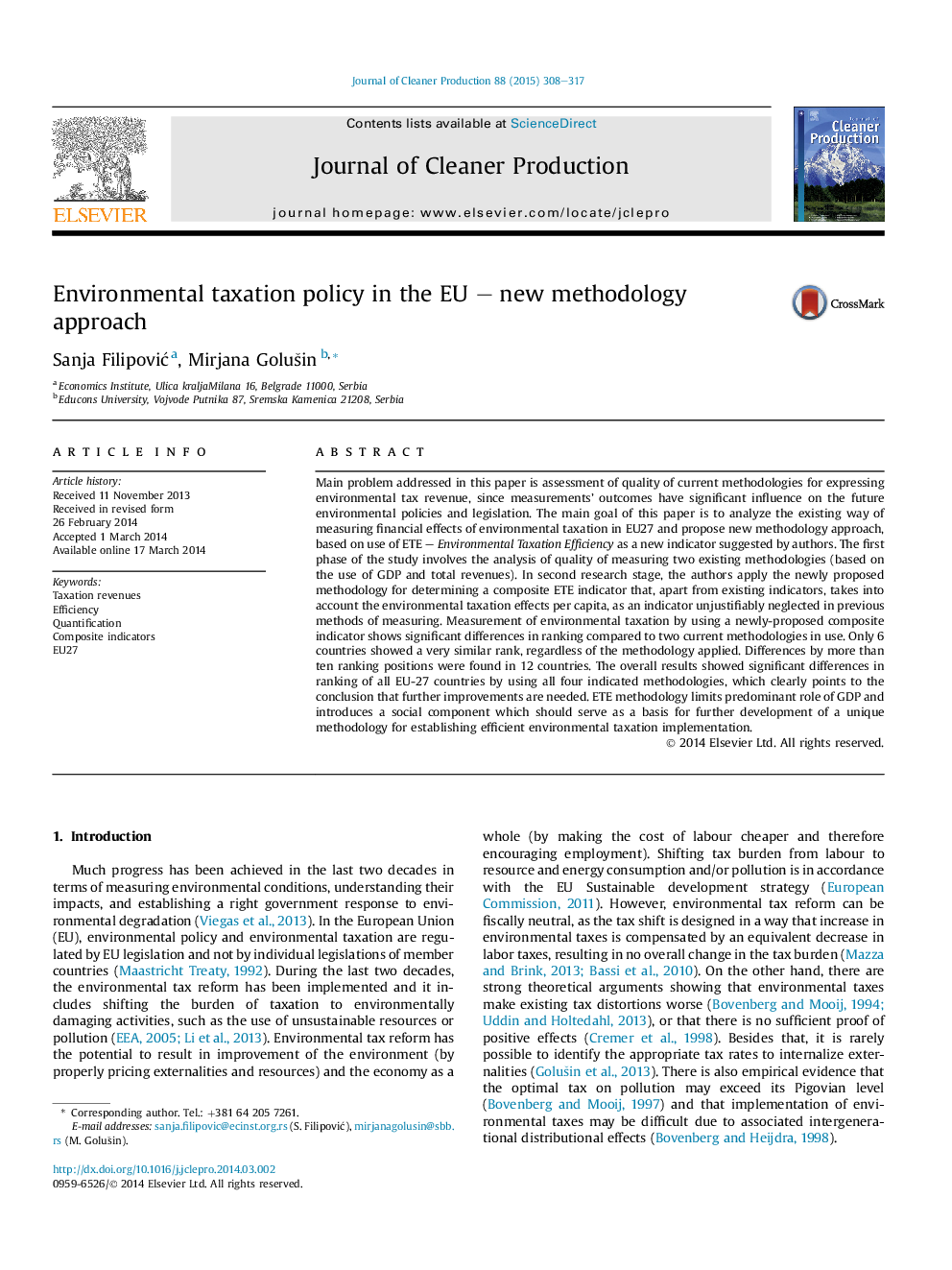| کد مقاله | کد نشریه | سال انتشار | مقاله انگلیسی | نسخه تمام متن |
|---|---|---|---|---|
| 1744782 | 1522158 | 2015 | 10 صفحه PDF | دانلود رایگان |
• Analysis of the existing way of measuring environmental taxation revenues in EU27.
• New Environmental Taxation Efficiency Indicator was proposed by authors.
• ETE indicator also takes into consideration environmental tax revenues per capita.
• ETE indicator indicates more clearly the ‘polluter pays’ principle.
Main problem addressed in this paper is assessment of quality of current methodologies for expressing environmental tax revenue, since measurements' outcomes have significant influence on the future environmental policies and legislation. The main goal of this paper is to analyze the existing way of measuring financial effects of environmental taxation in EU27 and propose new methodology approach, based on use of ETE – Environmental Taxation Efficiency as a new indicator suggested by authors. The first phase of the study involves the analysis of quality of measuring two existing methodologies (based on the use of GDP and total revenues). In second research stage, the authors apply the newly proposed methodology for determining a composite ETE indicator that, apart from existing indicators, takes into account the environmental taxation effects per capita, as an indicator unjustifiably neglected in previous methods of measuring. Measurement of environmental taxation by using a newly-proposed composite indicator shows significant differences in ranking compared to two current methodologies in use. Only 6 countries showed a very similar rank, regardless of the methodology applied. Differences by more than ten ranking positions were found in 12 countries. The overall results showed significant differences in ranking of all EU-27 countries by using all four indicated methodologies, which clearly points to the conclusion that further improvements are needed. ETE methodology limits predominant role of GDP and introduces a social component which should serve as a basis for further development of a unique methodology for establishing efficient environmental taxation implementation.
Journal: Journal of Cleaner Production - Volume 88, 1 February 2015, Pages 308–317
